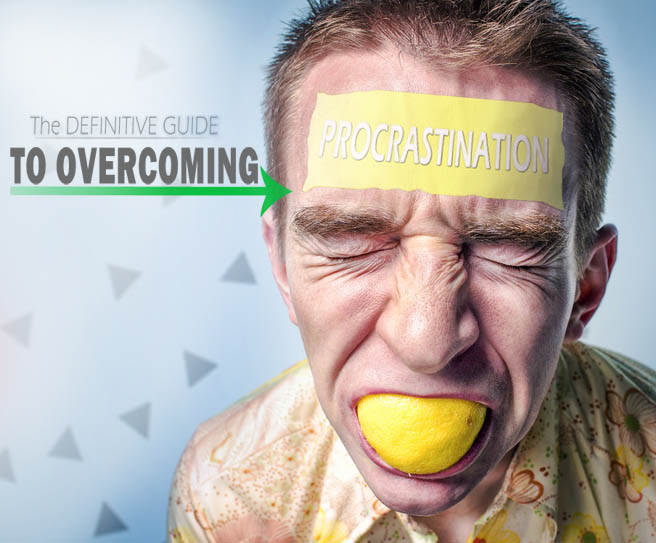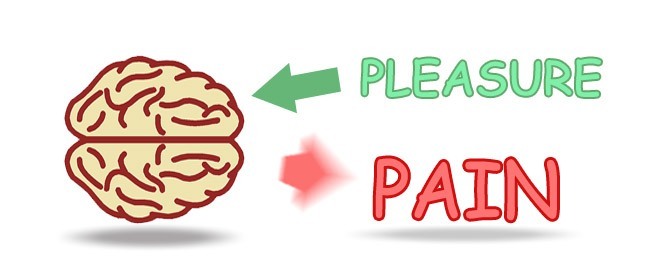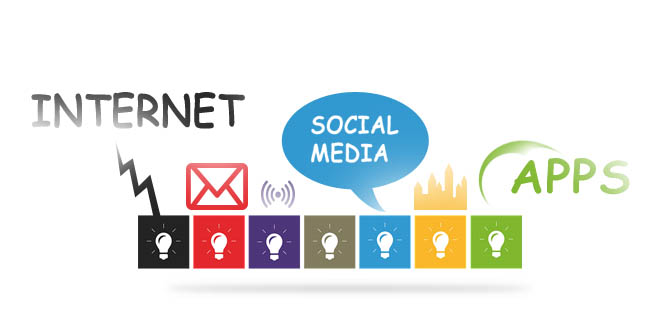
An Interesting Lesson
If you know one thing about me, I’m always behind when it comes to technology. When everyone was playing Playstation 2 I was playing the first console. When people started raving about Iphones I was using a flip phone. And now that everyone has a PS4 I still have a PS2.
I had a rich friend who was the complete opposite of me. He owned the latest gadgets, the coolest phones and he also owned a pretty nice ride. One of his newest toys was his brand new computer rig, so of course he invited me over to his house to show it off. I always wanted to know how it feels to have something top-of-the-line so of course I went over to his place to check it out.
It was custom built and he bought the greatest parts money can buy. It took him 5 thousand dollars to assemble. I didn’t even know desktops can cost that much. Of course I was extremely impressed. Soon he started up the beast and began playing a graphics intensive game to show me just what exactly it can do.
As he started playing the game something interesting happened. The game kept freezing. Every few minutes his computer would just hang. The graphics were amazing, he had a powerful pc, but all of that was pretty much wasted because it just kept stopping for no apparent reason. What is the point of an expensive rig if it cannot accomplish its task with efficiency.
The look on his face was priceless, it was a mixture of embarrassment and irritation. Thankfully he eventually realized it was software problem, and fixed it accordingly. Now, I didn’t tell you that story just to rip on my friend. It’s to show you that procrastination is like being a computer that keeps on freezing.
Related: 12 Revealing Habits of Extremely Successful People
Don’t be a faulty gadget
Just like a powerful machine with a software problem, no matter how skilled you are or no matter how talented you are, you will never reach your full potential if you cannot use your skills due to your inability to overcome procrastination. Procrastination is like an anomaly in your psychological programming that is preventing you from performing your tasks efficiently by repeatedly freezing your capability to work. When you are faced with picking between a productive activity and an instantly gratifying activity, you feel a great urge to choose the latter.
The Definitive Guide
In this definite guide I will show you how to overcome your procrastination hurdles so that you can release your true untapped potential and become the success you always knew you could be. This guide will not simply sprinkle you will small little tidbits on how to “maybe” solve your problem, but instead will give you a complete game-plan on how to improve your procrastination situation.
1. THE SCIENCE BEHIND PROCRASTINATION

The first step to solving procrastination is understanding what procrastination truly is. In basic terminology, procrastination is the preference of doing things that are less painful/more pleasurable. For example, watching tv is certainly less painful than solving math equations. Many articles out there promising to get rid of procrastination treat procrastination like its a disease. That may not be a good way of tackling the problem because procrastination is a natural human reaction to stress and varying degrees of motivation.
Temporal Motivation Theory
The scientific study of procrastination was spearheaded by Pier Steele. He formulated a mathematical equation called “temporal motivation theory.” For a detailed analysis of this go and read the article Procrastination: Is it really a bad thing? Basically, this equation suggests that procrastination is a result of the clash between your motivation to do something productive and your motivation to do something more pleasurable.
Related: The 13 Destructive Habits of Unhappy People
The key is impulsiveness
It suggests the primary factor contributing to procrastination is impulsiveness. That is the case because the higher a person’s impulsiveness, the more they prefer instant gratification. The more they prefer instant gratification, the more a productive activity, which would require a long time to get the reward, would look less attractive than a pleasurable activity that rewards you quickly.
Know your goal
So moving forward our aim is to basically find ways to either reduce impulsiveness or use other psychological techniques to use impulsiveness to your advantage.
2. PLAN AHEAD

A list of things to do works very well in reducing procrastination. It decreases your impulsiveness by predetermining your tasks. Your mind does not have time to wander about what you will do next as a results you focus more on what need to do rather than what you could do.
Plan your day
Start your day early and do something productive as soon as you can. It gives your productive motivation momentum. Many extremely successful people even go a step further and they set the ball rolling right before they sleep.
Plan your week
Give yourself workdays and rest days. Having a 7 day work week is a bit over-ambitious and will trigger your impulsiveness since your mind will seek relief in response to being overwhelmed. You can start going as low as having a 3 day work week and gradually increasing it to a 5 day work week.
Make deliverables with deadlines
Deliverables is a term in project management to denote tangible or intangible products to be delivered to your client. In this case, your client is yourself. Create a list on a notepad of the things you need to do. You will never remember all of them especially if you are conceptualizing an intricate project.
You need to set a deadline because time is an all-encompassing factor that must be managed carefully. Whether it’s a soft or hard deadline, there needs to be a deadline otherwise the project will never move forward. Once in a while you’ll see someone talk about a project that was “10 years in the making.” That most likely means they did not incorporate deadlines in their projects. Make sure to have daily, weekly and monthly deadlines.
Be consistent
Consistency is the key especially in the early parts of attempting to conquer your procrastination. You are essentially trying to form new habits because habits are extremely powerful tools. For example, a habit of building one block a day will eventually result in a tower that will rise above all because the habit guarantees that it never stops. When you do something productive, you don’t do it for gains you will get for the day, but you are doing it to protect that habit you have formed.
3. GIVE YOURSELF REWARDS

You might say succeeding is a reward in and of itself. True, however, it is often times quite a wait before you get that huge reward. That huge delay is what urges procrastination as your mind seeks for other things with more immediate rewards.
Use impulsiveness to your advantage
In the temporal motivation theory, impulsiveness is multiplied by the delay. During days when your impulsiveness is high, it can totally ruin your habit, so what do you about that? You can suck it up and just take it in the chin. Perhaps buy a gag ball and just bite on it until you get over it. Surely there is a smarter way to solve this problem.
Work hard but also work smart
I mentioned earlier that I will show you how to use your impulsiveness to your advantage. It is very simple. Give yourself short term rewards for meeting short term deliverables and deadlines. Use your own weakness to your advantage. Now the more you want to achieve that reward the more you will desire to finish your work.
You can make it as short as you want. For example you give yourself the reward of watching one episode of Game of Thrones whenever you finish one article. The more you want to watch the next episode the more you will want to write more articles. Of course this requires a lot of discipline, but discipline comes in time as it gets programmed into your behavior.
Give yourself all kinds of rewards
Of course you should be giving yourself not only short term, but also long term rewards as you meet your goals and deadlines. This is what will make achieving your goal much more profound which in turn will dramatically reduce your urge to procrastinate.
4. RELIEVE STRESS

As I mentioned earlier, impulsiveness is one of the key factors in procrastination. One of the key influences in impulsiveness is stress. The more stressed you are, the higher your impulsiveness because your impulse to leave that stressful situation is high.
Relieving stress short-term
This is the most common culprit for increasing impulsiveness. For example, as you write your essay you become stressed by the difficulty of project. It gets to the point that its so stressful that you finally whip out your phone and browse reddit for 5 hours. There are several ways to relieve stress short-term.
Make sure you are in a comfortable position while you are working. Studying on a comfy couch is a lot more desirable than studying on cold hard concrete.
Give yourself achievable expectations. Don’t try to do something overly ambitious. It will just stress you out. Instead give yourself mediocre expectations and when you finish it ahead of time, do extra modifications to make your work shine.
Relieving stress long term
Giving yourself rest days should help alleviate any burn-out, however, if that is not enough don’t feel bad about cruising through your work for a while. When I say cruise, that doesn’t mean don’t show up. It means you can reduce the intensity of your work to help you recover from the long term stress while still keeping your habit. As I have mentioned earlier, keeping the habit is the most important part. So if you are feeling a little overwhelmed, just take it easy for a little while, but always show up to work.
5. IMPROVE YOURSELF

Referring back to the temporal motivation theory, the two things that are affected by impulsiveness is expectancy and value. Expectancy is the how good you are at what you are trying to do multiplied by the value, which is the reward when you reach your goal. The bigger the products result from the two the better.
The means justify the end
It means that the better you are at something, the less likely you are to procrastinate because the likeliness of you getting the reward is higher. Psychologically speaking, it makes your goal seem easier to attain i.e. a an elite runner would be more motivated to win a sprinting competition than a total newbie simply because he knows it is within his grasp. So basically, the more you improve yourself in relation to the goals you are trying to attain, the less your urge will be to procrastinate.
6. USE TECHNOLOGY TO YOUR ADVANTAGE

Recently, technology has been guilty of encouraging us to procrastinate more with the availability of mobile phones and internet accessibility. We can easily distract ourselves from the task at hand and find ourselves wasting several hours playing a bubble popping game, or just browsing randomly. It’s time to use this same technology to combat procrastination.
The Pomodoro Technique
The Pomodoro technique was long invented during the 1980s by Francesco Cirillo. It is essentially a time management tool where you are given 25 minutes to get your task done. One 25 minute session is a “pomodoro.” For each pomodoro you complete, you get a 5 minute short break. After 4 pomodoros, you are then given a long break ranging from 15 to 30 minutes.
You would previously need to manually keep track of your pomodoros with a timer, a pencil and a paper, but mobile phone apps have recently started coming out with some very useful apps centered around the pomodoro technique. I highly suggest you visit your App Store or Play Store and search the word pomodoro. There are varieties of free and paid iterations of the pomodoro technique. There are also web based applications such as Tomato Timer.
At first, it would seem like it’s such a simple concept that can’t possibly yield significant results. It draws from the concept of timeboxing which is used in project management, but on a much shorter duration. The consequent deadlines keeps you from getting too distracted, and some applications that have a “time tick” sound effect somewhat gives you a visceral reminder that you can’t procrastinate during a pomodoro. Short burst of work is psychologically relieving since you know a break is not too far from reach, and the periodic breaks increase the quality and focus of the work.
7. HARNESS THE STRENGTH OF YOUR WILL

This definitive guide is designed to use behavioral psychology to your advantage in order to control procrastination, however, you should not completely rule pure strength of will out of the equation.
Challenge yourself
There would simply be days when you feel like you can’t take it anymore. Take that as challenge and as an opportunity to rise to the occasion. If success was easy, everyone would be doing it. We would all have our own castles and kingdoms.
There are doors you would need to go through to achieve success. This definitive guide is the master key, but there are times that even a master key may not work. Your will is the bulwark that will break through that door no matter what.
The question is will you break or will you solidify your resolve like gold through fire that purifies itself. The fires of burns away all of the pretense, all of the glitz and the glamor, and everything that you hide behind. Life has a way of pushing us to the very edge of our capabilities.
In order to achieve your goals, you need to take action. Interestingly that is the primary struggle in procrastination – will you keep doing what you are doing and let yourself by swept in the waves of failure, or will you get up and take action for a better future and your ultimate success? Only you can answer that.
